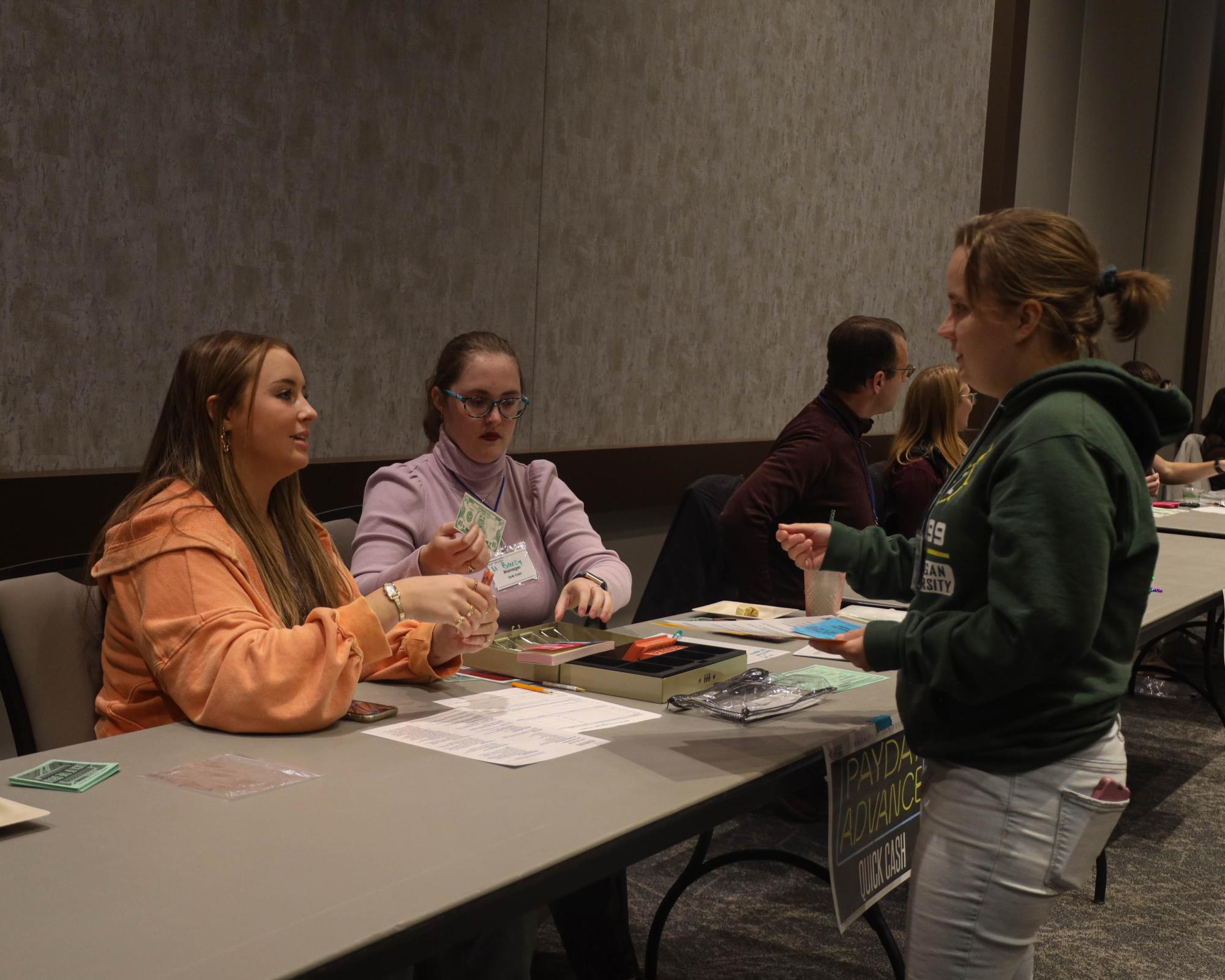In conjunction with the Student Nurses Association, Terry Delpier, a nursing professor, is running two Poverty Simulations, on Nov. 7 and Nov. 15, both held in the Northern Center Ballrooms II, III and IV.
The Poverty Simulation utilizes 20 to 30 volunteers to imitate living in poverty for participants. Participants include students in nursing, education, business and speech, language and hearing sciences classes. Participants were divided among both dates to run the simulation effectively.
Delpier explained that this simulation works through a purchased kit with roles and scripts for volunteers and participants. Volunteers will be assigned stations that will act as agencies for participants to visit. The volunteers will be given scripts, which they are allowed to follow as closely or as loosely as they want.
“We actually want some of [the volunteers] to be helpful. We want some of [the volunteers] to be less helpful because that is the real-world purpose of this,” Delpier said.
Participants will then be assigned roles in groups and will meet with their new “families” throughout the simulation. Participants then have to decide which agencies they should visit, like work, school or the doctor’s office depending on what their family identities and resources are.
Delpier gave examples of what these resources and characteristics could look like for participants.
“There are some families with a grandparent who has a disability,” Delpier said. “There are some families that have two parents and some that have one. We also have one type of family where the teenage brother ends up being in charge.”
Participants will be in the simulation for “four weeks” and each “week” segment is 15 minutes.
“We purposely keep the times that way so that [participants] have the feeling that there is not enough time and not enough money because that is typically what families go through,” Delpier said.
After the simulation is conducted, students will meet with their “families” to debrief and share what they learned.
“That is probably the most meaningful part of this,” Delpier said. “We have had students who have shared that they lived this when they were younger. I have had students say, ‘I went home and called my mom to thank her.’ It is just so moving.”
The takeaway and experience of this for students is one of the reasons Delpier began doing this simulation and continued it after the COVID-19 pandemic.
“Our students are all going to be working with families, some of whom probably are poor, so it is helpful to have an understanding or at least an empathy for what individuals and families are going through,” Delpier said.
Delpier explained that this simulation is an important type of learning – one that can be read about in books but that is better conveyed by the level of understanding gained through this simulation.
“That understanding, that even if we cannot change it, that understanding can go a long way towards trying to help,” Delpier said.
While participating in this simulation is generally kept for students in certain classes, volunteers are needed to work the agencies and can register here for the simulation on Nov. 15.








